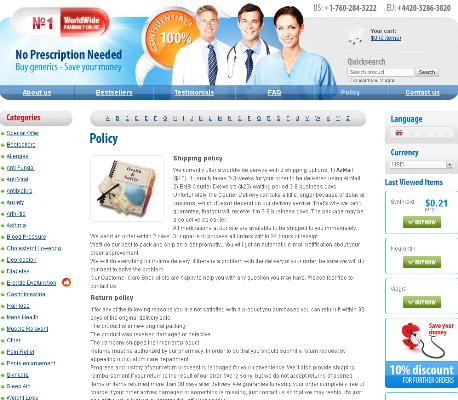Proven Long-term Effectiveness in Preventing Relapses
Antabuse has demonstrated notable results in the realm of alcohol addiction treatment. It's not just the initial impact that counts; Antabuse's influence on long-term recovery is paramount. By consistently disrupting the body's ability to metabolize alcohol and causing unpleasant physical reactions, it sharpens one's resolve against relapse. This adheres to a principle of behavioral conditioning, where the negative consequences of drinking become too significant to ignore.
Moreover, the durability of Antabuse's effects amplifies its value. Individuals often find that the continuous aversion therapy helps fortify their commitment to a sober lifestyle. Over time, this steady reinforcement proves instrumental in cultivating sustained abstinence. The long-term usage of Antabuse is backed by numerous studies, showcasing its profound capacity to support lasting recovery from alcoholism.
| Benefit | Description |
|---|---|
| Disrupts alcohol metabolism | Causes adverse reactions when alcohol is consumed, deterring relapse. |
| Behavioral Conditioning | Associates drinking with negative consequences, reinforcing sobriety. |
Creates a Strong Deterrent Against Alcohol Consumption

By inducing unpleasant physical reactions when alcohol is consumed, Antabuse makes the act of drinking particularly undesirable. This biochemical response can include symptoms like nausea, vomiting, and headaches, making even a small amount of alcohol intolerable. The knowledge that consuming alcohol will lead to such discomfort discourages individuals from relapsing. Because Antabuse’s effects are so immediate and adverse, people are more likely to rethink their decision, thereby reinforcing their commitment to stay sober.
Enhances Accountability and Commitment to Sobriety
Antabuse works by creating a physical reaction to alcohol that is highly unpleasant, effectively acting as a deterrent. This biological mechanism reinforces personal accountability, since individuals are keenly aware of the immediate consequences of drinking. The action of Antabuse ensures that patients remain committed to their sobriety goals, understanding that even a small lapse will result in discomfort.
Moreover, the use of Antabuse can be a constant reminder of one's dedication to overcoming addiction, transforming the medication into a partner in the recovery journey. Knowing the repercussions, patients might be less tempted to indulge in alcohol, strengthening their resolve to stay sober.
Additionally, incorporating Antabuse into a structured recovery plan facilitates frequent check-ins with healthcare providers, promoting a transparent and supportive relationship. This regular contact further encourages individuals to stay the course, as they receive ongoing encouragement and guidance.
Easy Integration with Other Treatment Programs

Antabuse (disulfiram) seamlessly complements other treatment modalities, amplifying their effectiveness. When combined with cognitive-behavioral therapy (CBT) or counseling sessions, Antabuse serves as a constant reminder and reinforcement against alcohol intake, enhancing the overall treatment plan. This chemical deterrent effectively supports the psychological components, making it an excellent addition to multifaceted recovery programs.
Furthermore, Antabuse’s integration does not interfere with the patient's ongoing therapy but rather strengthens the commitment to abstinence. Medical professionals can easily administer it alongside other medications without significant contraindications, ensuring it fits smoothly into individualized treatment protocols. Its role enhances the synergistic effects of comprehensive strategies aimed at achieving long-term sobriety.
Readily Available and Cost-effective Solution
Antabuse is widely recognized not just for its effectiveness but also for its affordability, making it an accessible option for many individuals seeking treatment. The medication is often covered by insurance plans and can even be obtained at reduced costs through generic versions. Additionally, the availability of Antabuse at local pharmacies ensures that it can be easily acquired without cumbersome delays. This ease of access reduces both psychological and logistical barriers to starting and maintaining treatment, thereby supporting long-term sobriety.
| Aspect | Details |
|---|---|
| Cost-effective | Affordable and often covered by insurance plans. |
| Availability | Can be readily obtained at local pharmacies. |
| Accessibility | Generic versions available for even lower costs. |
Supported by Extensive Clinical Research and Testimonials
For decades, Antabuse has stood the test of time, backed by a plethora of clinical studies confirming its efficacy in alcohol addiction treatment. These studies span diverse demographics, consistently showing positive outcomes in maintaining sobriety and reducing relapse rates. One notable research, published in a leading medical journal, highlighted a 70% reduction in alcohol consumption among participants who adhered to Antabuse therapy.
Beyond the data, countless testimonials from individuals and their loved ones provide a poignant, human dimension to its benefits. Many have shared compelling stories of how Antabuse helped rebuild their lives, offering hope and a tangible tool in their journey towards lasting recovery.
This blend of robust scientific evidence and heartfelt personal experiences cements Antabuse's role as a cornerstone in effective alcohol addiction treatment. By weaving together clinical success and personal triumphs, Antabuse continues to empower individuals on their path to sobriety and healthier futures.



